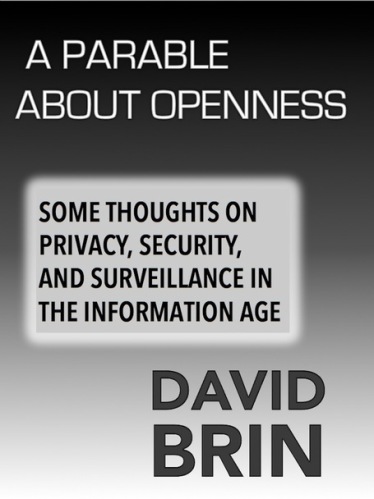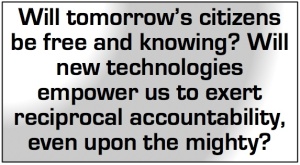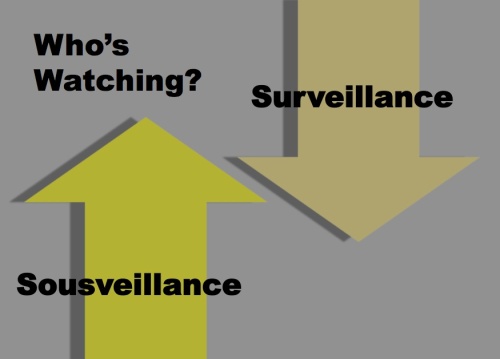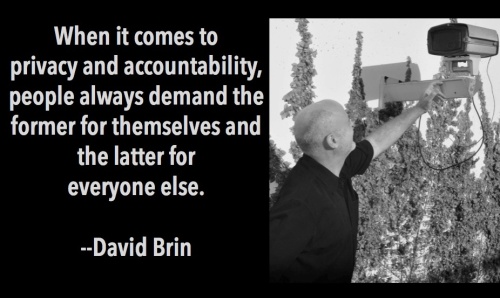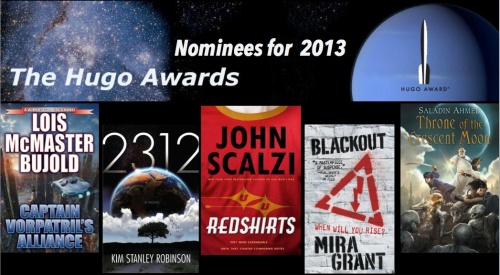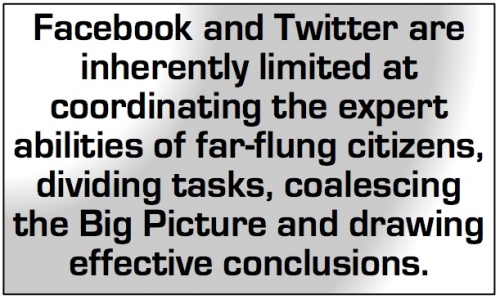 For starters, see a chart detailing ongoing investigations into banking havens worldwide. Scan a wide range of reactions, from Russian officials, Europeans and others:
For starters, see a chart detailing ongoing investigations into banking havens worldwide. Scan a wide range of reactions, from Russian officials, Europeans and others: --Tax Haven Data Leak Reverberates around the Globe
--Tax Havens Cause Poverty
--Release of Off-Shore Records draws Worldwide Response
FORECAST: This movement may be propelled - soon - by one or more radicalized nations in the developing world. Not radicalized by socialism or religion or dogmatic frenzy, but by the appearance of a new class of honest, grownup leaders at their helms. Imagine the fury that those leaders and their people will feel, when they suddenly realize just how much of their national wealth wealth was siphoned away by their own former kleptocrat lords.
Vast amounts that those thieves took with them into exile. Example: The Philippine Presidential Commission on Good Government probe into the disclosure that Maria Imelda Marcos Manotoc, the eldest daughter of the late dictator Ferdinand Marcos, was a beneficiary of a secret offshore trust of prodigious proportions, in the British Virgin Islands…
Now extrapolate this and you start to understand why the Swiss and other haven bankers have recently seemed willing - even eager - to strike semi-transparency deals with tax authorities in Europe and North America. (1) Because those big countries have dangerous klout that must be placated by tossing overboard some merely-rich, sub-billionaire clients. But far more likely - (2) because the real business of lucrative banking secrecy lies in that mountain of klepto-hoards looted from much poorer nations. By striking deals with the IRS and EU tax boards, they hope to prevent alliances between developed and developing nations, in a grand consortium for transparency.
There are things that such nations and peoples can do -- exceptional, dramatic and boldly effective things -- that could transform the world. There are ways. And when it happens, remember where you first heard this.*
You Americans out there who actually want a return to a vigorous, problem solving nation, where politics is about negotiation and the Peoples' will and not regression into feudalism, you must pay attention to this. There is really nothing more urgent you will watch, probably ever! Because the ability of the American Experiment to remain healthy and solve every problem hangs in the balance.
I mean it. Watch: Lawrence Lessig: We the People, and the Republic we must reclaim.
I mean it. Watch: Lawrence Lessig: We the People, and the Republic we must reclaim.
But this next matter is paramount, as well. One issue where I am a flaming, no-compromise radical, is a citizen's right to record encounters with authority, especially the police. Now the Obama Justice Department has made things starkly and abundantly clear. It is now “settled law” that anyone is allowed to record or photograph police officers in public.
A statement of interest – a legal term for when an agency or organization has a stake in the outcome of a trial, but not direct involvement – filed in the case of Mannie Garcia v. Montgomery County, Md., upholds the right of individuals to photograph police under the First, Fourth and Fourteenth Amendments to the U.S. Constitution. This is more important than it may seem. Most cops are hardworking and well-intentioned men and women. Their instincts - inherited from ancient eras - are understandable... and must not be allowed to prevail in this matter.
A statement of interest – a legal term for when an agency or organization has a stake in the outcome of a trial, but not direct involvement – filed in the case of Mannie Garcia v. Montgomery County, Md., upholds the right of individuals to photograph police under the First, Fourth and Fourteenth Amendments to the U.S. Constitution. This is more important than it may seem. Most cops are hardworking and well-intentioned men and women. Their instincts - inherited from ancient eras - are understandable... and must not be allowed to prevail in this matter.
San Diego police attack, arrest man video recording them, claiming his phone could be weapon.
Dinosaurs. In fact, this new era of omni-veillance will be essential and will help make policing easier! Especially if citizens feel they are partners and not victims. Take this example. NYPD fails to catch mugger for three weeks, but internet commenters catch him in one hour. My "smart mobs" from Existence, taking form already.
And related news -- A judge has blocked Iowa State University from releasing documents about food safety research conducted for the beef-processing company that makes the product dubbed "pink slime" by critics. At the level of details, there are actually reasons for compromise in this case. At the level of principle, none at all.
Indeed, after reading that article, ponder my 1980 novel Sundiver in which vision-based lie-detectors (inescapable, wherever there is light) utterly transform politics.
I predict that by 2016 there will be lurid claims from "experts" on all sides, claiming to catch fibs by opponents talking in public or on TV... experts who are then "shown" to be lyingI It will be chaos, at first. Then this stuff will become an App. And by 2020 or 2024? A useful tool> Possibly a sieve for psychopaths and monsters? Can you see yet why - for so many reasons - the clade of already-powerful psychopaths is growing desperate?
== And more transparency crux-points ==
Perching: Video, released by the Air Vehicle Directorate, shows a pigeon-like drone that can draw power from an electrical wire while its camera watches a target. These and other new-style drones are part of a fascinating and problematic future. Stay alert.
A multinational security firm has secretly developed software called RIOT capable of tracking people's movements and predicting future behavior by mining data from social networking websites. Riot can display on a spider diagram the associations and relationships between individuals online by looking at who they have communicated with over Twitter. It can also mine data from Facebook and sift GPS location information from Foursquare, a mobile phone app used by more than 25 million people to alert friends of their whereabouts. The Foursquare data can be used to display, in graph form, the top 10 places visited by tracked individuals and the times at which they visited them.
Curious whether a prescription or medical device your doctor is recommending comes from a manufacturer who has been paying your doctor? Good news, then: The federal government has finally developed a plan for how the Physician Payments Sunshine Act will work. The Sunshine Act, made federal law as part of the Affordable Care Act in 2010, was designed to allow anyone -- patients, doctors, journal editors -- to look up which doctors are getting how much from which companies.
 In the wake of the famous WikiLeaks events, a large number of emulation sites popped up around the world, aiming to blow the whistle on corruption from Bulgaria to India to Nicaragua. Most of these clones never got very far and appear to have all but shut down. Balkanleaks seems to be just one of a handful still actively receiving and publishing new documents. (Note, I long supported Witness since 1990 or so, a more robust model that does not rely on inherently fragile encryption methods.) As I described in The Transparent Society, maintaining methods of aggressive accountability, threatening the dark secrets of powerful men, is a dangerous game and secret codes are only the tip of what's required.
In the wake of the famous WikiLeaks events, a large number of emulation sites popped up around the world, aiming to blow the whistle on corruption from Bulgaria to India to Nicaragua. Most of these clones never got very far and appear to have all but shut down. Balkanleaks seems to be just one of a handful still actively receiving and publishing new documents. (Note, I long supported Witness since 1990 or so, a more robust model that does not rely on inherently fragile encryption methods.) As I described in The Transparent Society, maintaining methods of aggressive accountability, threatening the dark secrets of powerful men, is a dangerous game and secret codes are only the tip of what's required. Brad Foster puts into perspective the ever-rising tsunami of information and how crushing is the hypersonic waves of… bullshit. Just a few small examples: Netflix consumes a THIRD of all internet traffic. Four billion shares on Facebook every day. Eric Schmidt of Google says 5 exabytes of information were created by humanity till 1980. We now create that much every two days. Frost goes a bit over the top in his denunciations and diagnoses, but he concludes there has never been a better time for people to find ways around the BS and slim down, in order to be creative, or useful, or focus on what you can do that does (or is) some good.
== Brin on Beck? Via Penn Jillette? The strange world of Transparency ==
== Coda ==
 A final set of sad notes. I have spoken elsewhere of the terrible news that both Jay Lake and Iain Banks are in desperate fights against cancer. I will speak more of that later. (They are great writers and let's all send our best vibes.) Now comes news that the son of eminent science fiction author Dave Wolverton - AKA David Farland - suffered a terrible accident recently. Past fans of Dave's work - or folks interested in trying something new - might have a look at his novel Nightingale… or else, if you are a would be writer, consider Million Dollar Outlines, in which Dave offers would-be best-sellers advice how to analyze an audience and outline a novel so that it can appeal to a wide readership. Or make a donation:
A final set of sad notes. I have spoken elsewhere of the terrible news that both Jay Lake and Iain Banks are in desperate fights against cancer. I will speak more of that later. (They are great writers and let's all send our best vibes.) Now comes news that the son of eminent science fiction author Dave Wolverton - AKA David Farland - suffered a terrible accident recently. Past fans of Dave's work - or folks interested in trying something new - might have a look at his novel Nightingale… or else, if you are a would be writer, consider Million Dollar Outlines, in which Dave offers would-be best-sellers advice how to analyze an audience and outline a novel so that it can appeal to a wide readership. Or make a donation:Help Ben Walk.
------------
* Oh, but by then I may have been bribed into denying it all! No serious offers so far. You - the smart public - should feel insulted by that! Think about it.
David Brin
http://www.davidbrin.com






